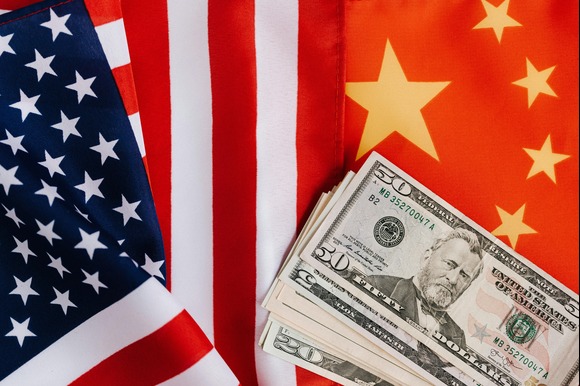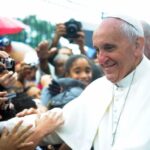China has announced that it will impose sanctions on officials, lawmakers, and leaders of non-governmental organizations from the United States, whom it accuses of inadequately addressing issues related to Hong Kong, according to a statement from the foreign ministry.
In March, the United States sanctioned six officials from China and Hong Kong, alleging their involvement in transnational repression and actions that threaten to undermine the autonomy of the city.
Among those sanctioned were Justice Secretary Paul Lam, security office director Dong Jingwei, and former police commissioner Raymond Siu.
In response to these actions by Washington, Chinese foreign ministry spokesperson Guo Jiakun condemned the US measures as “despicable” during a press briefing in Beijing on Monday.
He stated that the US has significantly interfered in Hong Kong’s affairs and violated principles of international law.
Guo indicated that China’s decision to sanction US congressmen, officials, and NGO leaders was based on the anti-foreign sanctions law, although he did not specify the individuals targeted.
Additionally, Guo cautioned that Hong Kong’s affairs are not open to US interference, asserting that any actions deemed inappropriate by the Chinese government regarding Hong Kong will be met with strong countermeasures and reciprocal actions.
These reciprocal sanctions concerning human rights issues in Hong Kong reflect the escalating tensions between Beijing and Washington, which are already engaged in a trade conflict that has unsettled businesses on both sides.
Furthermore, Beijing issued a separate warning to other nations on Monday, advising them against entering trade agreements with the US that could be detrimental to China.
The sanctions imposed by the United States on officials in March were not the initial measures concerning the former British territory, which reverted to Chinese governance in 1997. During Donald Trump’s initial term as president, his administration enacted sanctions against Hong Kong and Chinese officials for actions that undermined the region’s autonomy.
In 2021, the administration of former President Joe Biden expanded these sanctions in response to Beijing’s repression of political freedoms within the semi-autonomous city.
Following the implementation of a national security law by China in 2020, aimed at suppressing the significant anti-government protests of 2019, Hong Kong authorities have pursued legal action against numerous prominent activists in the city.
Media organizations known for their critical stance towards the government have ceased operations after the arrest of their senior management. Additionally, many civil society organizations have disbanded.
In the last two years, Hong Kong authorities have issued arrest warrants for 19 activists living abroad, offering bounties of 1 million Hong Kong dollars (approximately USD 128,536) for information leading to their capture. Some of these individuals are based in the United States.
This prolonged crackdown has faced condemnation from foreign governments, particularly as the city was assured that its Western-style civil liberties and semi-autonomy would be preserved for a minimum of 50 years following the 1997 handover.
Both the Beijing and Hong Kong administrations maintain that the law is essential for ensuring the stability of the city.






